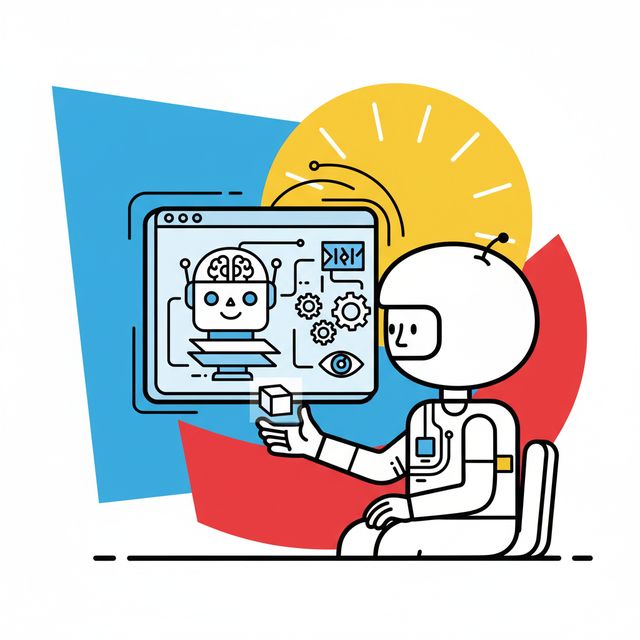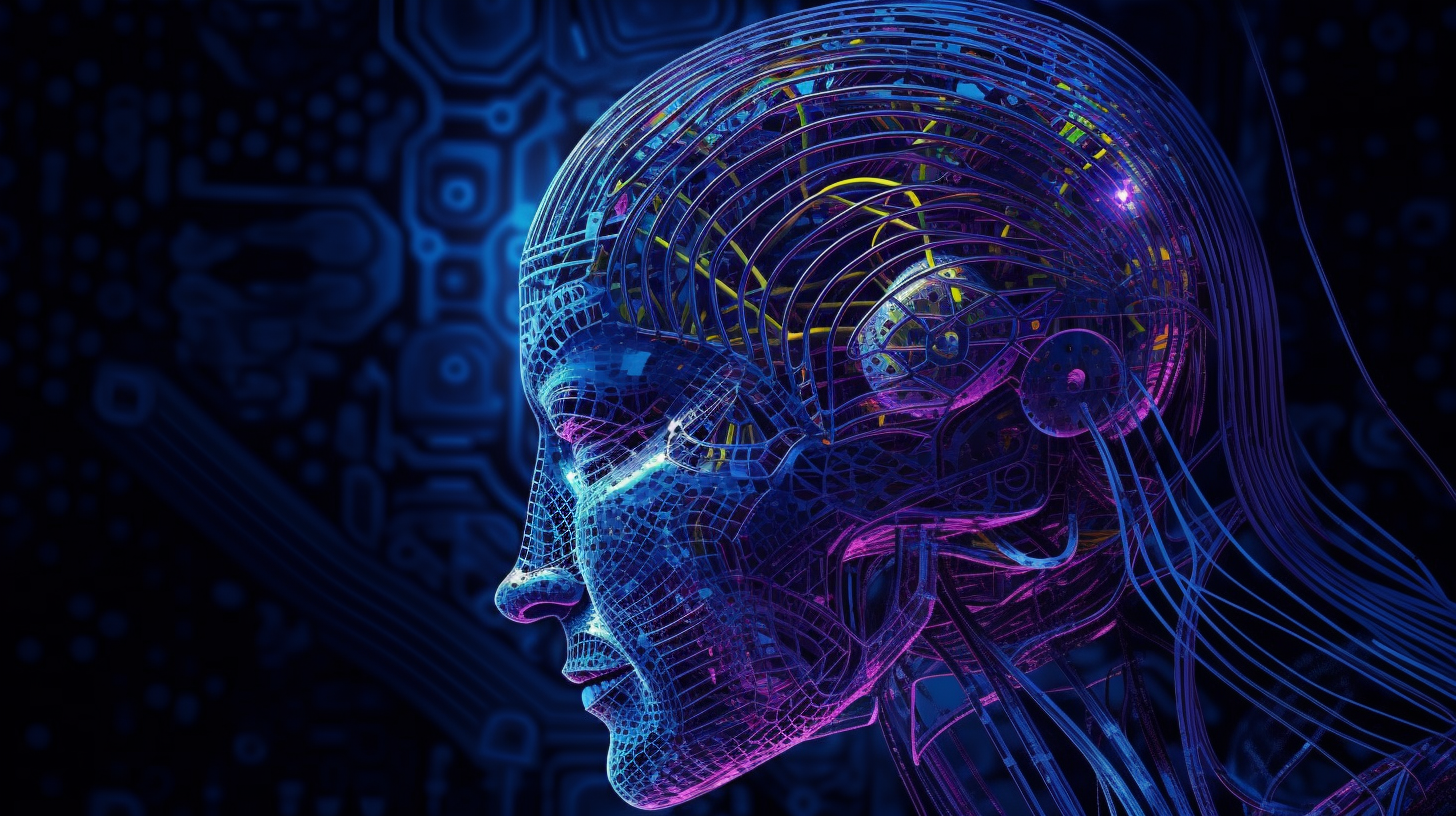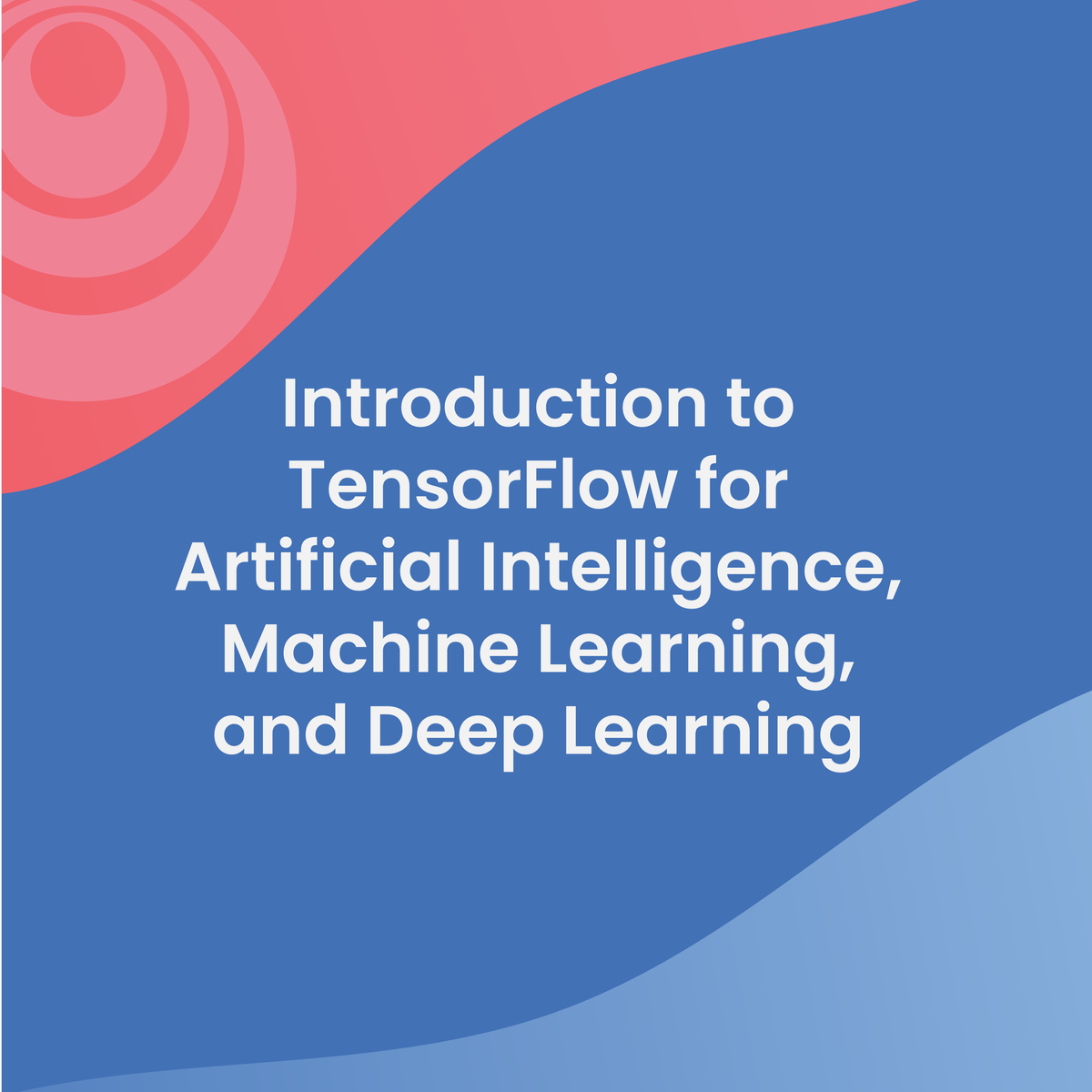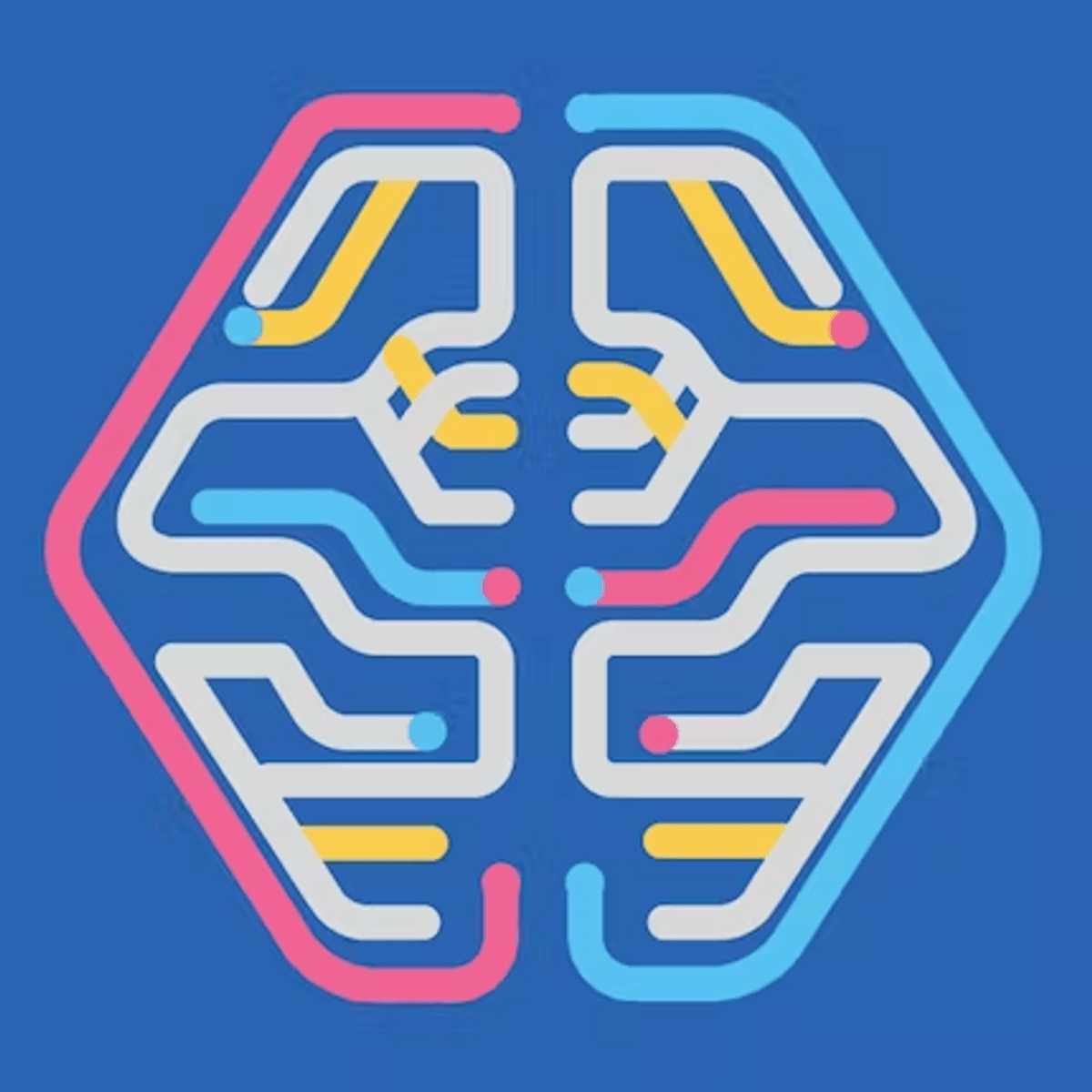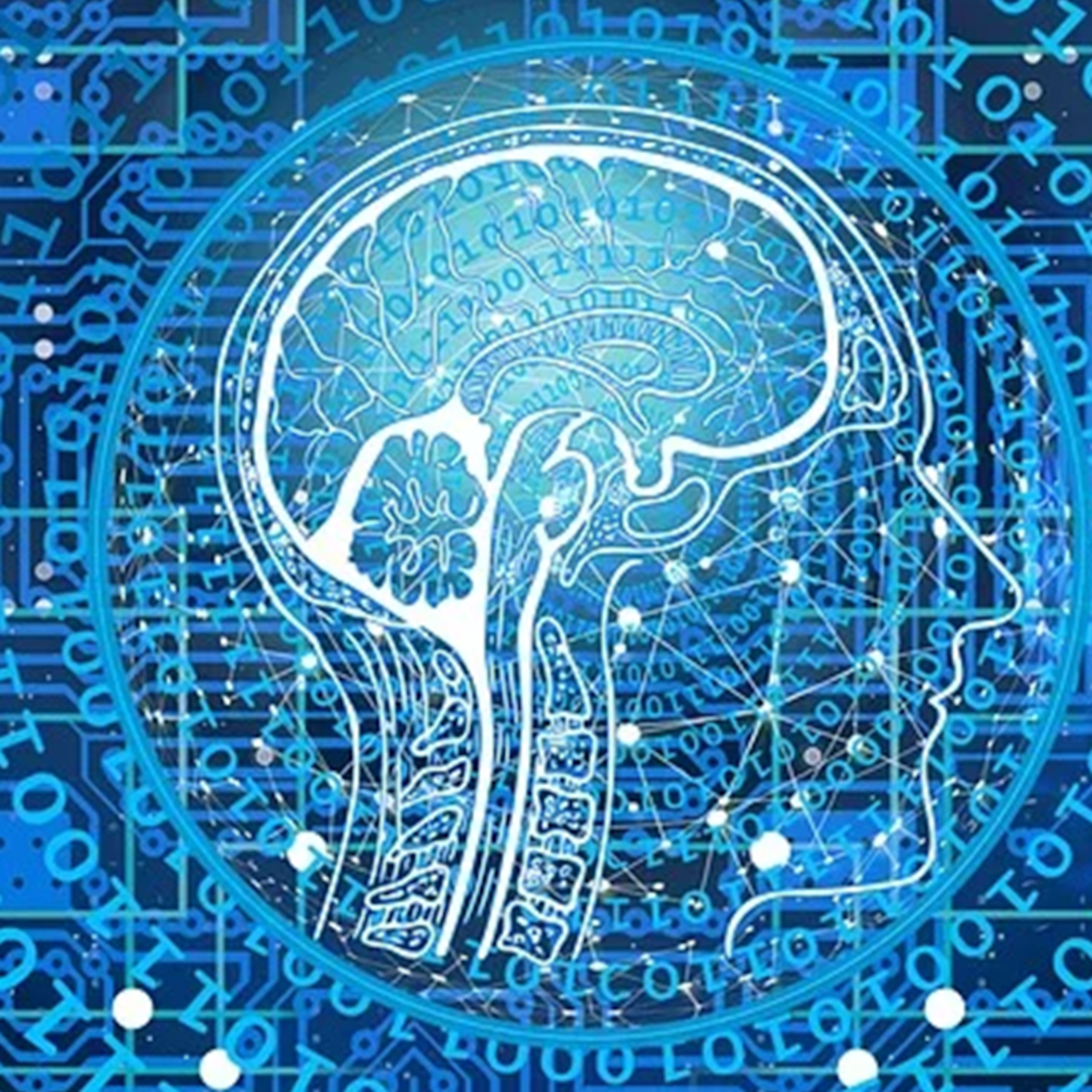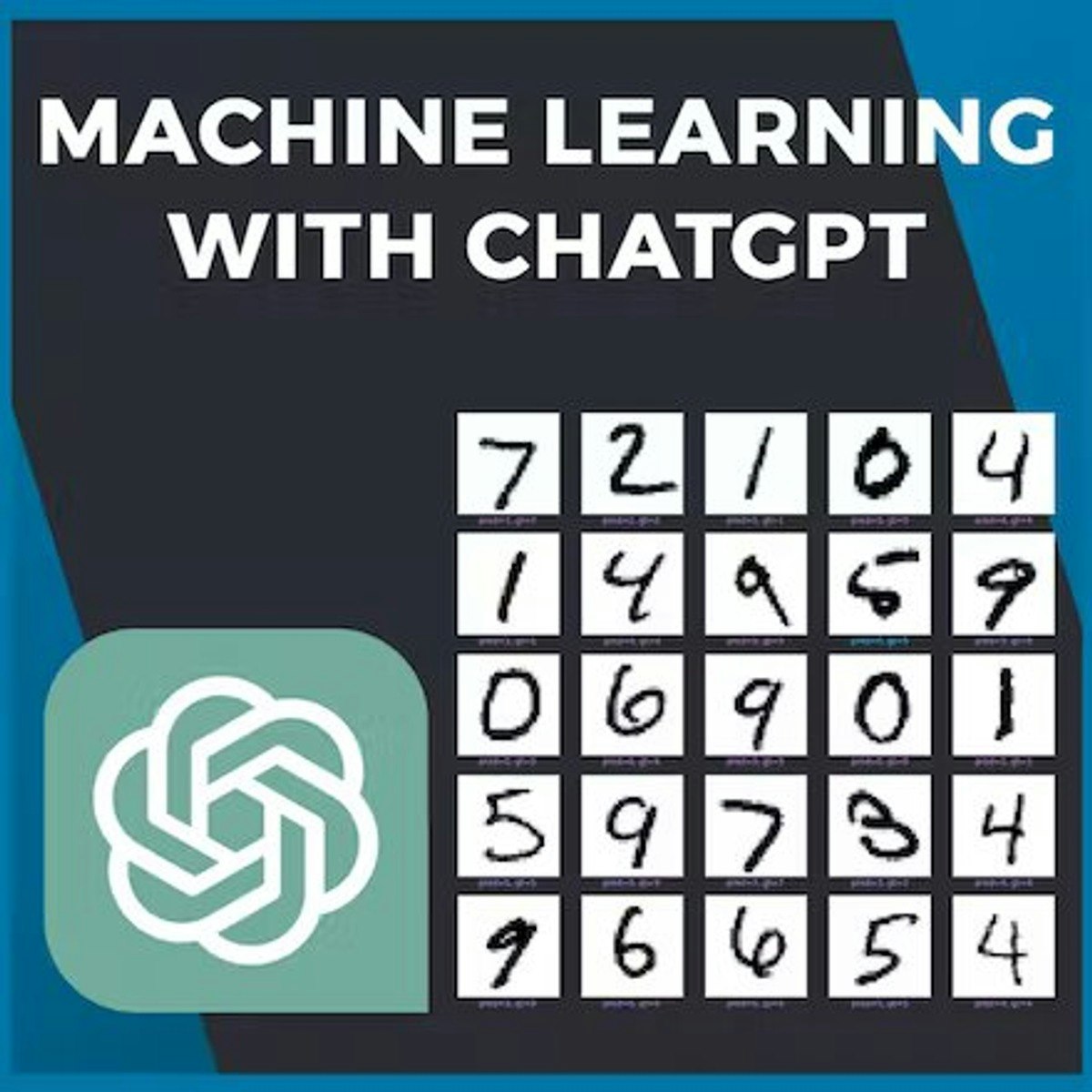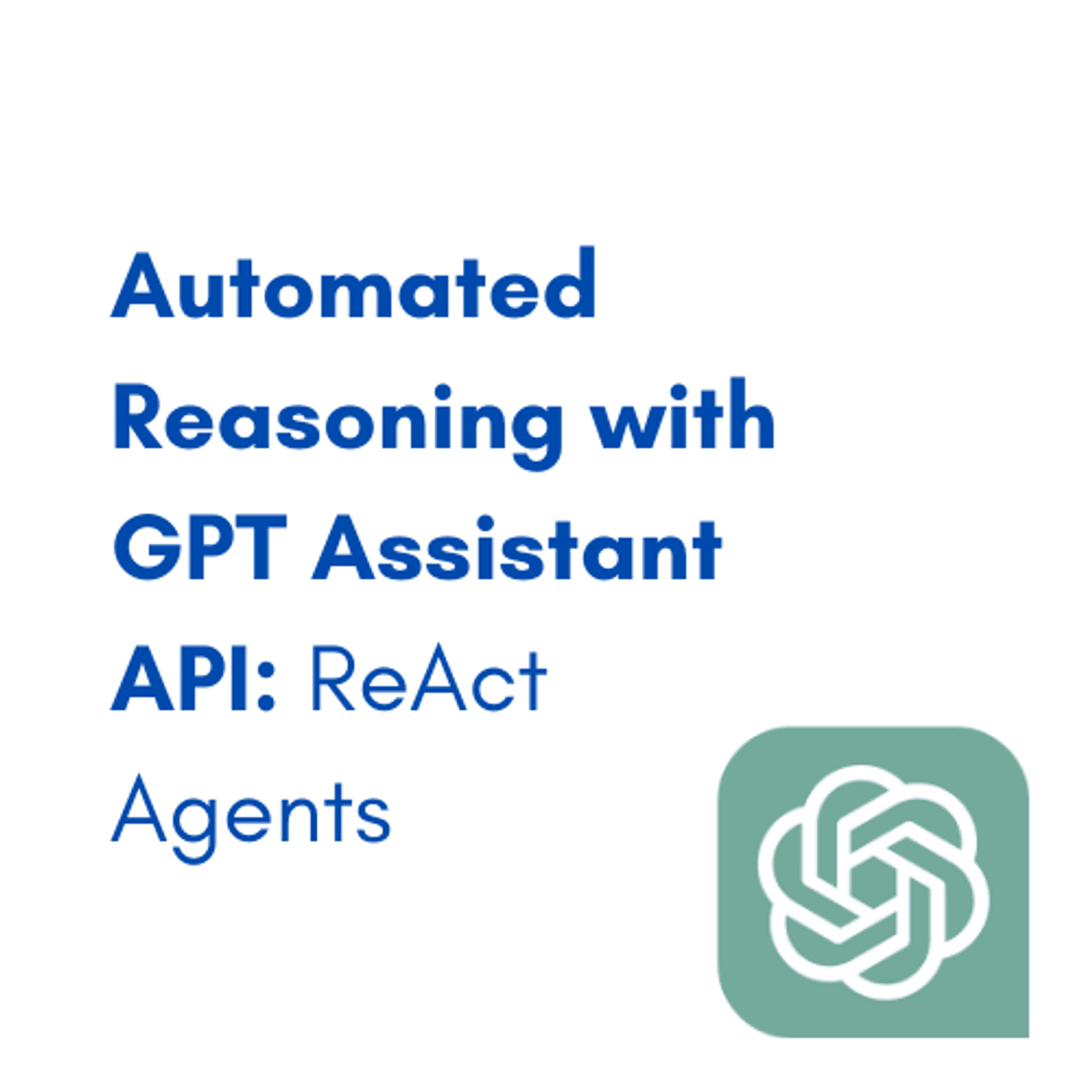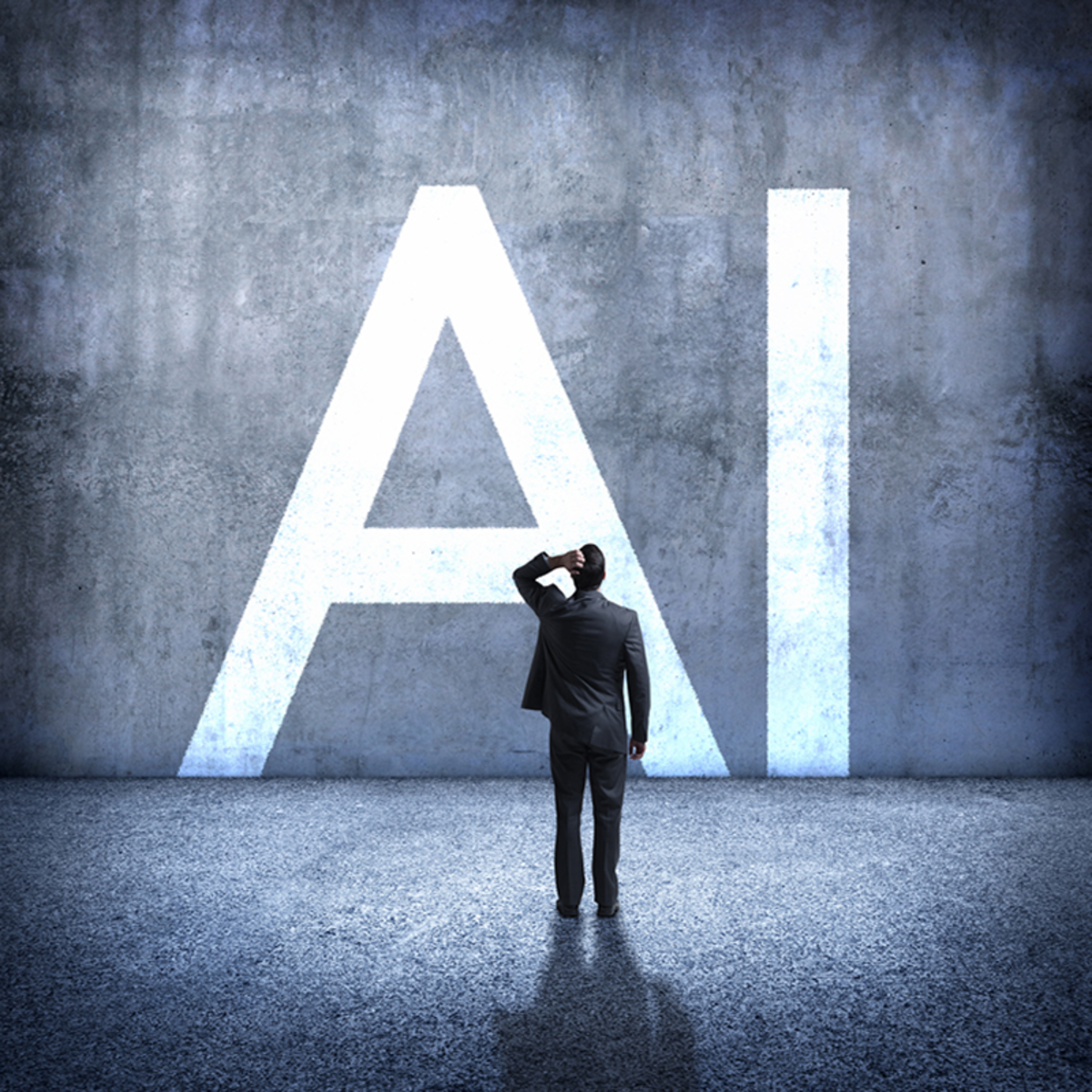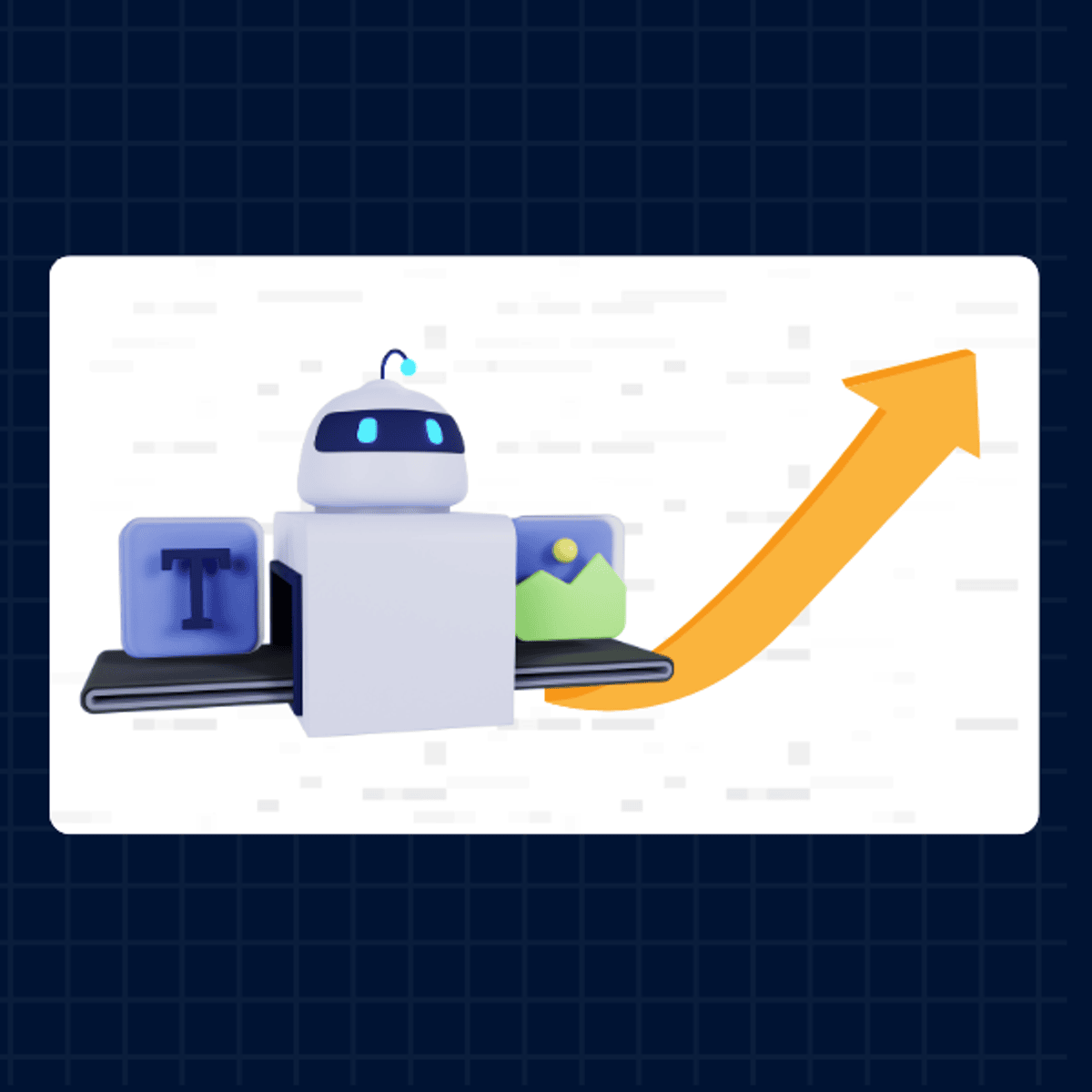Artificial Intelligence Engineer
Artificial Intelligence Engineer: Shaping the Future with Code
Artificial Intelligence (AI) Engineers are the architects and builders of intelligent systems. They design, develop, and deploy AI models and applications that can learn, reason, and make decisions, mimicking aspects of human intelligence. This field sits at the exciting intersection of computer science, data science, and software engineering, focusing on creating practical AI solutions that solve real-world problems.
Working as an AI Engineer often involves tackling complex challenges, from processing vast amounts of data to optimizing algorithms for peak performance. It's a role that demands continuous learning, as the field evolves rapidly. For those fascinated by creating systems that can perceive, understand, and act on information, AI Engineering offers a highly engaging and impactful career path.
What is Artificial Intelligence Engineering?
Defining the Field and Its Scope
Artificial Intelligence Engineering is a specialized branch of engineering focused on creating the systems, tools, and infrastructure that power AI applications. While Data Scientists often focus on analyzing data and deriving insights or developing model prototypes, AI Engineers productionize these models. They ensure AI systems are scalable, efficient, robust, and integrated seamlessly into larger software ecosystems.
The scope is broad, encompassing areas like machine learning, deep learning, natural language processing (NLP), computer vision, robotics, and expert systems. AI Engineers work across the entire lifecycle of an AI project, from understanding requirements and designing solutions to implementation, testing, deployment, and ongoing maintenance.
Essentially, they translate the potential of AI algorithms into tangible products and services. This requires a strong foundation in software engineering principles alongside expertise in AI-specific concepts and tools.
AI Engineering vs. Related Roles
It's helpful to distinguish AI Engineering from similar roles. Data Scientists often explore data, build statistical models, and test hypotheses. Their work might lead to a promising algorithm, but it's typically the AI Engineer who transforms that algorithm into a production-ready system.
Software Engineers build broad software applications, and while they might integrate AI components, their focus isn't solely on AI systems. An AI Engineer, however, specializes in the unique challenges of building and deploying AI, such as managing large datasets, handling model versioning, and ensuring model performance in real-time environments.
Data Scientists research and prototype, while AI Engineers build and deploy. Software Engineers build general software, while AI Engineers specialize in building intelligent systems.
A Brief History and Why It Matters Now
The conceptual roots of AI date back centuries, but the field gained momentum in the mid-20th century with pioneers exploring logic, computation, and the possibility of simulating thought. Early enthusiasm faced periods of slowed progress ("AI winters") due to limitations in computing power and data availability.
However, recent decades have seen an explosion in AI, driven by breakthroughs in machine learning algorithms (especially deep learning), the availability of massive datasets (Big Data), and significant increases in computational power (like GPUs).
Today, AI is transforming industries from healthcare and finance to entertainment and transportation. AI Engineers are crucial because they are the ones building these transformative technologies, making AI practical, accessible, and impactful in our daily lives.
Core Goals and Diverse Applications
The primary goal of an AI Engineer is to build systems that can perform tasks typically requiring human intelligence. This includes understanding language, recognizing patterns in images or sound, making predictions based on data, and controlling robotic systems.
Applications are incredibly diverse. Think of recommendation engines suggesting movies or products, virtual assistants understanding voice commands, autonomous vehicles navigating roads, medical imaging analysis tools detecting diseases, or financial systems identifying fraudulent transactions. AI Engineers are behind the scenes, making these complex applications work reliably and efficiently.
For those getting started, foundational knowledge in AI concepts is key. These courses offer a gentle introduction to the world of artificial intelligence.
The Day-to-Day of an AI Engineer
Designing, Building, and Deploying AI Models
A core part of the AI Engineer's job involves the practical implementation of AI models. This starts with understanding the problem and designing an appropriate AI solution, selecting suitable algorithms and architectures. They then write the code to build and train these models, often using large datasets.
Once a model is trained, the AI Engineer works on deploying it into a production environment. This means making the model accessible to users or other systems, ensuring it runs efficiently, and can handle real-world traffic and data variations. This deployment phase often involves cloud platforms and specialized infrastructure.
Maintenance is also key. AI Engineers monitor deployed models for performance degradation, retrain them with new data, and update them as needed to ensure continued accuracy and relevance.
Working with Cross-Functional Teams
AI Engineers rarely work in isolation. They collaborate closely with various teams to bring AI projects to life. This includes working with Data Scientists who may have developed the initial model prototypes, providing feedback on feasibility and production requirements.
They also interact with Product Managers to understand user needs and business goals, ensuring the AI solution aligns with the overall product strategy. Collaboration with Software Engineers is essential for integrating AI components into larger applications, and working with Operations or DevOps teams ensures smooth deployment and infrastructure management.
Strong communication and collaboration skills are therefore vital for translating complex technical concepts and coordinating efforts across different functional areas.
Optimizing for Performance and Scale
AI models, especially deep learning models, can be computationally intensive and require significant resources. A critical responsibility for AI Engineers is optimizing these models for both speed and efficiency. This might involve refining the model architecture, using specialized hardware like GPUs or TPUs, or employing techniques like model compression or quantization.
Scalability is another major concern. AI systems often need to handle vast amounts of data and serve numerous users simultaneously. Engineers must design systems that can scale horizontally (adding more machines) or vertically (using more powerful machines) to meet demand without compromising performance.
This involves careful consideration of infrastructure, distributed computing techniques, and efficient data pipelines to ensure the AI solution performs reliably under load.
Navigating Ethical Considerations
Building AI systems comes with significant ethical responsibilities. AI Engineers must be mindful of potential biases in data and algorithms, which could lead to unfair or discriminatory outcomes. They work to identify and mitigate these biases during the design and testing phases.
Ensuring data privacy and security is paramount, especially when working with sensitive user information. AI Engineers must implement robust security measures and comply with relevant data protection regulations. Transparency and explainability are also growing concerns – understanding *why* an AI makes a certain decision is crucial for building trust and accountability.
Engineers play a role in considering the broader societal impact of the AI systems they build, contributing to responsible innovation practices within their organizations.
Essential Skills and Technologies
Programming Languages: The Lingua Franca
Proficiency in programming is fundamental for AI Engineers. Python has become the dominant language in the AI/ML space due to its extensive libraries (like NumPy, Pandas, Scikit-learn), robust community support, and relative ease of use for data manipulation and model building.
While Python is primary, knowledge of other languages can be beneficial. R is popular in statistical modeling and data analysis. Languages like Java or Scala might be used in big data ecosystems (e.g., Spark), and C++ is often employed for performance-critical applications or deploying models on hardware with limited resources.
A strong grasp of core programming concepts, data structures, and algorithms is essential regardless of the specific language used.
These courses provide a solid foundation in Python, the most common language used in AI development.
This book offers a practical guide to using Python for AI tasks.
Machine Learning Frameworks and Libraries
AI Engineers rely heavily on machine learning frameworks to build, train, and deploy models efficiently. TensorFlow (developed by Google) and PyTorch (developed by Meta/Facebook) are the two most prominent deep learning frameworks.
Familiarity with at least one, and ideally both, is crucial. These frameworks provide tools for defining neural networks, managing data, performing automatic differentiation (for training), and deploying models. Other important libraries include Scikit-learn for traditional machine learning algorithms, Keras (often used as a high-level API for TensorFlow), and libraries specific to NLP (like Hugging Face Transformers) or computer vision (like OpenCV).
Understanding the strengths and weaknesses of different frameworks allows engineers to choose the best tool for the task at hand.
These courses delve into popular frameworks used for building AI models.
Cloud Platforms and Infrastructure Know-How
Modern AI development often happens in the cloud due to the need for scalable computing resources, large storage capacity, and managed services. AI Engineers should be comfortable with major cloud platforms like Amazon Web Services (AWS), Microsoft Azure, and Google Cloud Platform (GCP).
This includes understanding their specific AI/ML services (e.g., SageMaker on AWS, Azure Machine Learning, Vertex AI on GCP), managing virtual machines, using containerization technologies like Docker and orchestration tools like Kubernetes for deployment, and setting up data storage and processing pipelines.
Infrastructure-as-Code (IaC) tools like Terraform can also be valuable for managing cloud resources programmatically. Basic knowledge of networking and security principles within the cloud environment is also necessary.
These courses cover AI solutions within specific cloud environments.
Data Preprocessing and Model Evaluation
Raw data is rarely suitable for direct use in AI models. AI Engineers spend significant time on data preprocessing – cleaning data, handling missing values, transforming features (e.g., normalization, encoding categorical variables), and selecting relevant features.
Equally important is model evaluation. Engineers need to understand various metrics (accuracy, precision, recall, F1-score, AUC, etc.) to assess how well a model performs and choose the right metrics for the specific problem. They employ techniques like cross-validation to ensure the model generalizes well to unseen data.
Skills in data manipulation libraries (like Pandas), data visualization tools (like Matplotlib or Seaborn), and understanding statistical concepts are crucial for these tasks.
These courses focus on the critical steps of preparing data and evaluating model effectiveness.
Educational Routes to AI Engineering
Preparing Before University
For high school students interested in AI Engineering, building a strong foundation in mathematics and programming is key. Focus on courses like calculus, linear algebra, probability, and statistics. These mathematical concepts underpin many AI algorithms.
Developing programming skills early is also beneficial. Learning Python is a great start, focusing on fundamental concepts like data types, control structures, functions, and basic data structures. Participating in coding clubs, online coding challenges, or personal projects can solidify these skills.
Exposure to basic computer science principles, such as algorithms and data structures, will also provide a significant advantage when pursuing higher education.
Undergraduate and Graduate Degrees
A bachelor's degree in Computer Science, Software Engineering, Data Science, Statistics, or Mathematics typically provides the necessary foundational knowledge. Look for programs offering specializations or elective courses in Artificial Intelligence, Machine Learning, or Data Mining.
Many AI Engineers pursue advanced degrees. A Master's degree (e.g., M.S. in Computer Science with an AI/ML focus, M.S. in Data Science, M.S. in Artificial Intelligence) offers deeper specialization and is often preferred by employers for more advanced roles. Courses will likely cover advanced algorithms, deep learning architectures, NLP, computer vision, and AI ethics.
Gaining practical experience through internships or co-op programs during university is highly valuable for bridging the gap between academic knowledge and industry application.
The Role of PhDs in AI
A PhD is typically required for roles focused heavily on research and development, pushing the boundaries of AI theory and creating novel algorithms or techniques. Academia and industrial research labs (at companies like Google, Meta, Microsoft, etc.) often seek candidates with PhDs.
PhD programs involve deep specialization in a specific subfield of AI (like reinforcement learning, natural language understanding, or computer vision theory), contributing original research published in peer-reviewed venues. While a PhD provides unparalleled depth, it's generally not a prerequisite for most applied AI Engineering roles focused on building and deploying existing technologies.
However, the rigorous research, problem-solving, and analytical skills developed during a PhD are highly valued across the industry.
Certifications and Specialized Training
Beyond formal degrees, certifications and specialized training programs can enhance an AI Engineer's skill set and resume. Cloud providers (AWS, Azure, GCP) offer certifications focused on their AI/ML platforms, demonstrating proficiency in using their services for building and deploying models.
Specialized bootcamps or online programs focusing on specific AI domains (like Deep Learning, NLP, or MLOps - Machine Learning Operations) can provide intensive, practical skills development. While certifications don't replace fundamental knowledge or experience, they can validate specific skills and show commitment to continuous learning in this fast-evolving field.
These certifications often require passing exams and sometimes involve hands-on labs.
These courses can help prepare for specific AI certifications or offer specialized training paths.
Learning AI Online and Independently
Is Self-Study a Viable Path?
Absolutely! While formal education provides structure, the abundance of high-quality online resources makes self-directed learning a feasible path into AI Engineering, especially for motivated individuals or those pivoting from related technical fields like software development.
Online platforms offer courses covering everything from foundational mathematics and programming to advanced deep learning concepts and specific tools. Success through self-study requires discipline, a structured approach, and a commitment to hands-on practice.
It can be challenging, but building a strong portfolio of projects is key to demonstrating skills to potential employers when lacking a traditional degree in the field. Many successful AI Engineers have non-traditional backgrounds, proving that passion and persistence can forge a path.
For those considering a career change or starting from a non-technical background, it's important to be realistic about the steep learning curve but also encouraged by the accessibility of learning materials. Start with the fundamentals and build progressively.
This course specifically addresses how to get into the field.
This book provides a comprehensive overview that can guide self-study.
Crafting Your Own Learning Curriculum
Designing a self-study curriculum requires careful planning. Start with the prerequisites: strengthen your math (linear algebra, calculus, probability, statistics) and programming (Python) skills. Then, move into core machine learning concepts – supervised vs. unsupervised learning, common algorithms (regression, classification, clustering), and model evaluation techniques.
Next, delve into deep learning: understand neural networks, backpropagation, activation functions, and explore major architectures like Convolutional Neural Networks (CNNs) for image data and Recurrent Neural Networks (RNNs) or Transformers for sequential data like text.
Finally, focus on practical engineering aspects: learn key frameworks (TensorFlow/PyTorch), cloud platforms (AWS/Azure/GCP), data engineering tools, and MLOps principles (version control, deployment, monitoring). OpenCourser allows you to search for courses across these topics and save them to a personalized list using the "Save to list" feature, helping you structure your learning path.
These comprehensive bootcamps and Nanodegree programs offer structured paths for acquiring AI skills.
The Power of Projects and Portfolios
Theoretical knowledge is essential, but practical application is what truly builds skill and demonstrates capability. Working on personal projects is arguably the most crucial part of self-directed AI learning. Start with small, manageable projects based on course exercises or tutorials, then gradually tackle more complex, independent challenges.
Aim for projects that showcase a range of skills: data collection and cleaning, model building and training, evaluation, and perhaps even simple deployment (e.g., as a web app). Document your projects thoroughly on platforms like GitHub, explaining your process, challenges, and results. This creates a portfolio that serves as concrete evidence of your abilities for potential employers.
Contribute to open-source AI projects or participate in online competitions (like Kaggle) to gain experience, learn from others, and further enhance your portfolio.
These project-focused courses provide hands-on experience in specific AI applications.
Blending Online Learning with Formal Studies
Online learning isn't just for self-starters; it's also a powerful supplement to formal education. University courses provide theoretical depth and foundational understanding, while online courses often offer practical, tool-specific training that might move faster than traditional curricula.
Students can use online courses to dive deeper into specific topics introduced in lectures, learn new frameworks or libraries not covered in their program, or gain hands-on experience through project-based online modules. This blend allows for a well-rounded education, combining theoretical rigor with up-to-date practical skills.
Moreover, online platforms provide flexibility, allowing students to learn at their own pace and explore areas of interest beyond their required coursework, helping them specialize or tailor their skills for specific career goals.
Exploring diverse learning resources is easy on OpenCourser's Artificial Intelligence browse page.
Your Career Path as an AI Engineer
Starting Out: Internships and Entry-Level Roles
Breaking into AI Engineering often starts with internships during university or entry-level positions like Junior AI Engineer, Machine Learning Engineer Associate, or similar titles. These roles typically involve supporting senior engineers, focusing on tasks like data preprocessing, running experiments, testing models, or maintaining existing AI systems.
Employers look for a solid foundation in computer science, programming (especially Python), mathematics (linear algebra, calculus, probability), and basic machine learning concepts. Demonstrating practical skills through projects, coursework, or contributions to open source is crucial, especially for candidates without direct work experience.
Networking through university career fairs, industry conferences, or online communities can also open doors to initial opportunities.
Growing and Specializing: Mid-Career Paths
After gaining foundational experience, AI Engineers often specialize in specific subfields. Common specializations include Natural Language Processing (NLP), focusing on text and language understanding systems; Computer Vision, dealing with image and video analysis; Reinforcement Learning, for training agents to make decisions through trial and error; or MLOps, focusing on the operational aspects of deploying and managing ML systems.
Mid-career roles might involve leading smaller projects, mentoring junior engineers, and taking ownership of specific AI components or systems. Continuous learning is vital to keep up with new techniques and tools within the chosen specialization.
Developing deeper expertise in areas like specific deep learning architectures, cloud infrastructure optimization, or ethical AI practices becomes increasingly important.
Consider exploring related roles like Machine Learning Engineer.
These courses cover advanced and specialized areas within AI.
Reaching the Top: Leadership and Research Roles
Experienced AI Engineers can progress into leadership positions such as AI Architect, Principal AI Engineer, AI Team Lead, or Director of AI. These roles often involve setting technical direction, designing complex AI system architectures, leading teams of engineers, managing project roadmaps, and interfacing with business stakeholders.
Another path leads towards research-focused roles, often requiring a PhD. Titles like Research Scientist or AI Researcher involve developing novel algorithms, publishing findings, and driving innovation within a company's R&D division or an academic institution.
Strong technical depth combined with strategic thinking, leadership qualities, and excellent communication skills are essential for success at these senior levels.
The Global Job Market: Trends and Demand
The demand for skilled AI Engineers remains high globally across various industries, including technology, finance, healthcare, e-commerce, automotive, and entertainment. Companies are increasingly integrating AI into their products and operations, driving the need for professionals who can build and manage these systems.
While demand is strong, the field is also competitive, particularly for entry-level roles. Employers seek candidates with a blend of strong theoretical understanding and practical, hands-on experience. According to reports like those from LinkedIn or industry analysts, skills in deep learning frameworks, cloud platforms, and MLOps are particularly sought after. Staying updated with the latest advancements through continuous learning is critical for long-term career viability.
Salary expectations are generally high, reflecting the specialized skills required and the significant impact AI Engineers have on business outcomes. Research from firms like Robert Half often provides salary benchmarks for technology roles, including those related to AI.
Confronting Ethical Challenges
Understanding and Mitigating Bias
One of the most significant ethical challenges in AI is bias. AI models learn from data, and if that data reflects historical societal biases (related to race, gender, age, etc.), the model can perpetuate or even amplify those biases in its predictions or decisions. This can lead to unfair outcomes in areas like hiring, loan applications, or criminal justice.
AI Engineers have a responsibility to be aware of potential sources of bias in data collection, feature engineering, and model training. They employ techniques to detect bias (e.g., fairness metrics) and mitigate it (e.g., using specialized algorithms, re-sampling data, or adjusting model thresholds). This requires careful consideration and often involves collaboration with domain experts and ethicists.
Ongoing monitoring of deployed models is also crucial to catch biases that may emerge over time.
Privacy, Security, and Data Governance
AI systems often require access to large amounts of data, some of which may be personal or sensitive. Protecting user privacy and ensuring data security are critical ethical and legal obligations. AI Engineers must implement robust security practices to prevent data breaches and unauthorized access.
Techniques like differential privacy or federated learning can help train models while minimizing exposure of raw individual data. Adherence to data protection regulations (like GDPR or CCPA) is essential, requiring careful data handling, anonymization where possible, and transparent policies about data usage.
Establishing clear data governance frameworks within organizations helps ensure data is collected, stored, and used responsibly throughout the AI lifecycle.
Regulation, Compliance, and Accountability
The regulatory landscape for AI is rapidly evolving worldwide. Governments and international bodies are developing frameworks and laws to govern the development and deployment of AI technologies, particularly in high-risk areas. AI Engineers need to stay informed about relevant regulations in their industry and region.
Compliance involves ensuring that AI systems meet legal requirements regarding safety, fairness, transparency, and data protection. Establishing clear lines of accountability for AI system outcomes is also crucial. Who is responsible when an AI system makes a mistake or causes harm? Defining these responsibilities is an ongoing challenge involving technical, legal, and organizational considerations.
Frameworks like the NIST AI Risk Management Framework provide guidance for managing risks associated with AI.
Broader Societal Impacts
Beyond specific technical issues, AI Engineers should consider the broader societal implications of their work. This includes potential impacts on employment, economic inequality, social interaction, and even democratic processes (e.g., through disinformation spread by AI).
Thinking critically about the intended and unintended consequences of AI applications is part of responsible engineering. Engaging in discussions about AI ethics and contributing to best practices within the field helps ensure that AI is developed and deployed in ways that benefit society as a whole.
This involves a commitment to transparency, human well-being, and considering diverse perspectives throughout the development process.
These resources explore the ethical dimensions and societal context of AI.
The Future is Now: Trends and Outlook
The Rise of Generative AI and Autonomous Systems
Generative AI, powered by large language models (LLMs) like GPT and diffusion models for images, has captured public imagination and is rapidly changing the AI landscape. AI Engineers are increasingly involved in fine-tuning these models, building applications on top of them (using APIs), and developing techniques like Retrieval-Augmented Generation (RAG) to improve their accuracy and relevance.
Autonomous systems, including self-driving cars, drones, and advanced robotics, continue to progress. Engineers in this space focus on challenges related to perception, decision-making under uncertainty, sensor fusion, and ensuring safety and reliability in complex, dynamic environments.
These trends require engineers to adapt and learn new techniques related to transformer architectures, prompt engineering, reinforcement learning, and simulation environments.
Explore the cutting edge with these courses on Generative AI and related technologies.
Industry-Specific Transformations
AI is not a monolithic force; its impact varies significantly across different industries. In healthcare, AI is being used for drug discovery, diagnostic assistance, personalized treatment plans, and operational efficiency. In finance, AI powers algorithmic trading, fraud detection, credit scoring, and customer service chatbots.
Retail uses AI for demand forecasting, personalized marketing, and supply chain optimization. Entertainment leverages AI for content recommendation, special effects generation, and personalized user experiences. Manufacturing employs AI for predictive maintenance, quality control, and robotics automation. AI Engineers often develop specialized domain knowledge to effectively apply AI within these specific contexts.
Understanding the unique challenges and opportunities within a particular industry is becoming increasingly valuable.
Adaptability: The Key to Future-Proofing Your Career
The field of AI is characterized by rapid change. New algorithms, tools, and techniques emerge constantly. Therefore, the most crucial skill for an AI Engineer is adaptability and a commitment to lifelong learning. What is state-of-the-art today might be outdated in a few years.
Future-proofing your career involves staying curious, actively seeking out new knowledge through research papers, online courses, conferences, and industry publications. Building strong foundational knowledge in mathematics, computer science, and core ML principles provides a stable base upon which to learn new specializations.
Developing "meta-skills" like critical thinking, problem-solving, and effective communication will remain valuable regardless of specific technological shifts. Flexibility and a willingness to embrace new challenges are essential.
The Evolving Ethical and Regulatory Horizon
As AI becomes more powerful and pervasive, ethical considerations and regulatory oversight will inevitably increase. We can expect ongoing development of laws, standards, and best practices related to AI fairness, transparency, accountability, privacy, and safety.
AI Engineers will need to stay abreast of these developments and integrate ethical design principles and compliance requirements into their workflows from the outset. The ability to navigate complex ethical dilemmas and communicate effectively about the risks and benefits of AI systems will be increasingly important.
Organizations like the World Economic Forum and various governmental AI initiatives are actively shaping this future landscape.
Frequently Asked Questions about AI Engineering Careers
What qualifications are essential to become an AI Engineer?
Typically, a bachelor's degree in Computer Science, Data Science, Statistics, Mathematics, or a related field is the minimum requirement. Many roles, especially more specialized ones, prefer or require a Master's or PhD. Strong programming skills (especially Python), knowledge of core ML/DL concepts, familiarity with relevant frameworks (TensorFlow, PyTorch), and understanding of data structures and algorithms are essential. Practical experience through projects or internships is highly valued.
Can I switch to AI Engineering from a non-technical field?
Transitioning from a completely non-technical background is challenging but not impossible. It requires significant dedication to acquiring the necessary foundational skills in math, programming, and core AI concepts. A structured learning path, potentially through bootcamps or intensive online programs, combined with building a strong project portfolio, is crucial. Leveraging existing domain expertise from your previous field can be an advantage if applied to AI within that domain. Be prepared for a steep learning curve, but know that persistence pays off.
How competitive is the job market for AI Engineers?
The job market is generally strong due to high demand across industries, but it is also competitive, particularly for entry-level positions. Companies seek candidates with demonstrable skills and practical experience. Specializing in high-demand areas like NLP, computer vision, or MLOps can enhance competitiveness. Continuous learning and staying updated with the latest technologies are vital for maintaining a competitive edge throughout your career.
Which industries hire the most AI Engineers?
The tech industry (major tech companies, software firms, startups) is a primary employer. However, demand is rapidly growing in many other sectors. Finance (banks, hedge funds, fintech), healthcare (hospitals, pharma, biotech), e-commerce and retail, automotive (especially for autonomous driving), entertainment, and consulting firms are all significant employers of AI Engineers. Government and research institutions also hire AI talent.
Is a PhD necessary to advance in AI Engineering?
A PhD is generally not necessary for most applied AI Engineering roles, including senior and architect positions focused on building and deploying systems. However, a PhD is often required or highly preferred for roles centered on fundamental research, developing novel algorithms, or leading cutting-edge R&D initiatives, particularly in academic settings or large industrial research labs. For many engineers focused on application development, a Master's degree and practical experience are sufficient for career advancement.
How does AI Engineering affect traditional Software Engineering roles?
AI Engineering doesn't necessarily replace traditional Software Engineering but rather complements and evolves it. Many software roles now require some understanding of AI/ML principles to integrate intelligent features into applications. AI creates new specialized roles (like AI Engineer, MLOps Engineer) but also augments existing ones. Software engineers who develop AI literacy can find new opportunities, while AI engineers rely heavily on strong software engineering foundations to build robust and scalable systems.
Embarking on a career as an Artificial Intelligence Engineer is a commitment to continuous learning and tackling complex problems at the forefront of technology. It requires a unique blend of analytical rigor, creative problem-solving, strong programming skills, and an awareness of ethical responsibilities. While the path can be demanding, the opportunity to build intelligent systems that shape the future makes it an incredibly rewarding and impactful journey for those passionate about the potential of AI.

